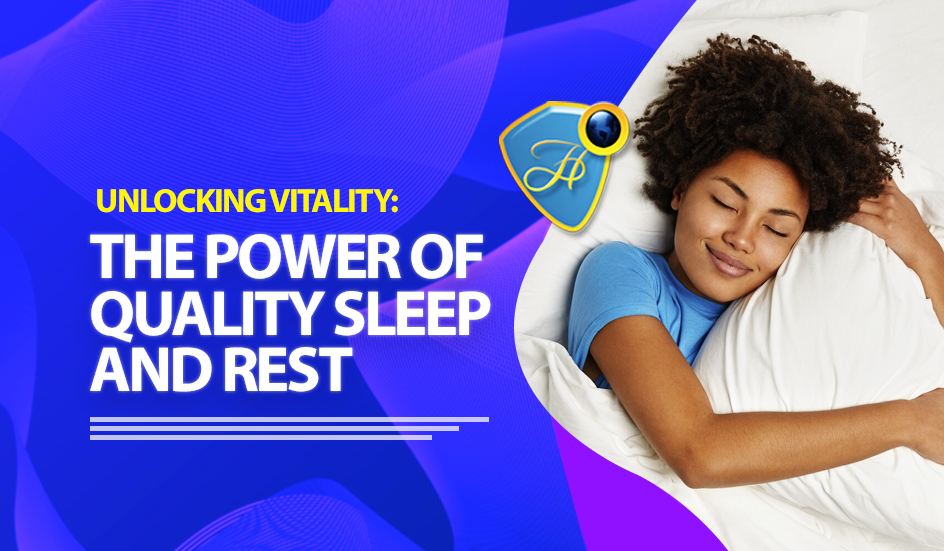
UNLOCKING VITALITY: THE POWER OF QUALITY SLEEP AND REST
For a truly amazing day where you feel so wonderful, full of energy, and mentally sound with no stress-inducing chronic illnesses, you have to sleep and rest.
The human body is an intricately designed marvel, capable of remarkable feats and productivity. Yet, amidst all its capabilities, it also requires periods of rest and rejuvenation to function optimally. Sleep, in particular, plays a crucial role in ensuring the body's vitality and overall health. Indeed, many health challenges stem from a lack of sufficient sleep, depriving the body of the opportunity to recharge and regenerate its cells effectively.
Moreover, sleep contributes significantly to mental faculties such as focus, memory retention, and mental acuity. There are instances when prioritizing sleep over late-night study sessions proves to be the wiser choice, as adequate rest ultimately enhances performance and productivity. Therefore, it's essential to plan ahead and organize tasks efficiently to avoid sacrificing sleep for last-minute endeavors, ensuring optimal performance in various endeavors.
While the recommended sleep duration is 6-8 hours per day for optimal health, achieving this consistently may pose challenges in today's fast-paced world. However, making sleep a priority most days is crucial for overall well-being. For individuals struggling with insomnia or difficulty falling asleep, there are often underlying reasons behind their sleep disturbances.
In such cases, two primary factors warrant consideration: the prompting of the Holy Spirit for prayer and the quality of one's sleep hygiene. Sleep hygiene encompasses various daily habits and practices that influence the quality of sleep. Improving sleep hygiene involves simple, yet impactful adjustments to daily routines.
firstly, it's advisable to avoid working in bed, as this helps the brain distinguish between work and rest environments, promoting better sleep onset. Additionally, maintaining consistent sleep schedules by sleeping and waking up at the same times each day reinforces the body's natural sleep-wake cycle, preventing disruptions that can lead to fatigue and sleep deprivation.
Furthermore, limiting caffeine intake, especially in the hours leading up to bedtime, aids in facilitating restful sleep. Short daytime naps, ideally lasting 20 minutes or less, can provide a quick energy boost without interfering with nighttime sleep patterns. However, excessive or prolonged napping can disrupt the sleep cycle, leading to grogginess upon waking.
Avoiding long-term use of sleeping pills is advisable, as they can create dependency and disrupt the body's natural sleep mechanisms. Addressing sources of stress and anxiety is also crucial, as these factors can contribute to insomnia and sleep disturbances. By cultivating a serene and stress-free environment, individuals can promote better sleep quality and overall well-being.
In essence, prioritizing adequate sleep and rest is essential for maintaining optimal physical and mental health. By adopting healthy sleep habits and addressing underlying factors affecting sleep quality, individuals can enjoy more energized, fulfilling, and productive lives.





















